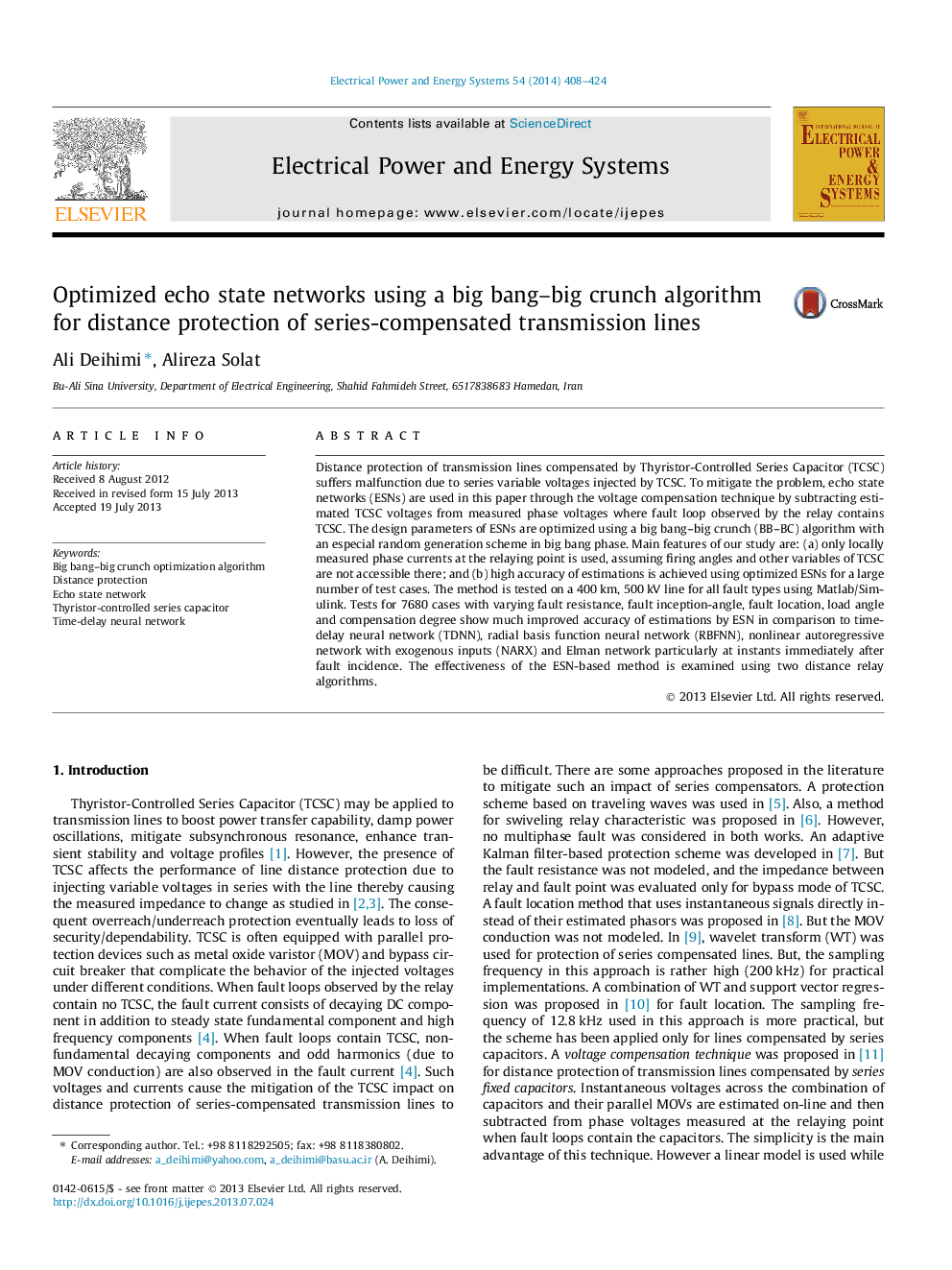| Article ID | Journal | Published Year | Pages | File Type |
|---|---|---|---|---|
| 398872 | International Journal of Electrical Power & Energy Systems | 2014 | 17 Pages |
•TCSC voltage is estimated using only measured phase currents at relaying point.•ESN optimized by a BB–BC algorithm and tested by many cases shows promising accuracy.•ESN outperforms TDNN, RFBNN, NARX and Elman in estimations after fault incidence.•ESN trained by signals recorded at a higher sampling frequency gives more accuracy.•Simulations of relays with ESN-based voltage compensation show proper relaying.
Distance protection of transmission lines compensated by Thyristor-Controlled Series Capacitor (TCSC) suffers malfunction due to series variable voltages injected by TCSC. To mitigate the problem, echo state networks (ESNs) are used in this paper through the voltage compensation technique by subtracting estimated TCSC voltages from measured phase voltages where fault loop observed by the relay contains TCSC. The design parameters of ESNs are optimized using a big bang–big crunch (BB–BC) algorithm with an especial random generation scheme in big bang phase. Main features of our study are: (a) only locally measured phase currents at the relaying point is used, assuming firing angles and other variables of TCSC are not accessible there; and (b) high accuracy of estimations is achieved using optimized ESNs for a large number of test cases. The method is tested on a 400 km, 500 kV line for all fault types using Matlab/Simulink. Tests for 7680 cases with varying fault resistance, fault inception-angle, fault location, load angle and compensation degree show much improved accuracy of estimations by ESN in comparison to time-delay neural network (TDNN), radial basis function neural network (RBFNN), nonlinear autoregressive network with exogenous inputs (NARX) and Elman network particularly at instants immediately after fault incidence. The effectiveness of the ESN-based method is examined using two distance relay algorithms.
